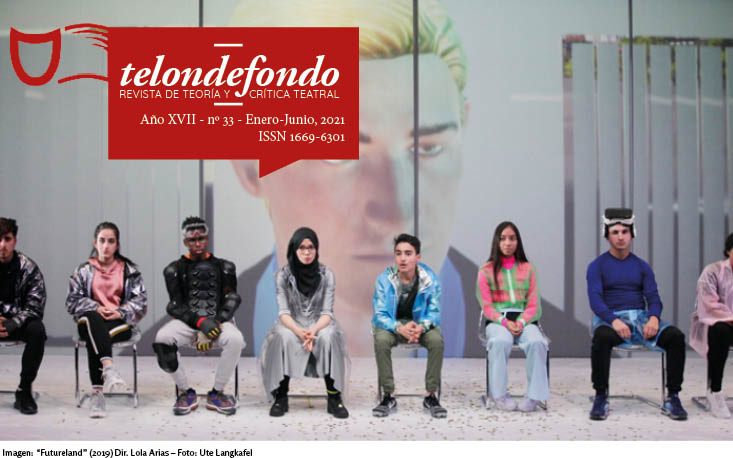Translation and transfer: those other words in Stoppard’s theater
Abstract
The use of the expression "representation system" assumes a variety of possibilities that are even projected outside the register of the language. In this way, a mixture of representations and echoes that will built a shape to a staging and that requires the observation of the viewer / reader to establish such links. This time we will focus on two short plays by Tom Stoppard to see how he organizes a mise en scène" with different conflicts focused on the problem of language, translation and representation. In "Dogg’s Hamlet, Cahoot’s Macbeth the theme of the reference in the particular use of language leads to establishing a hiatus between the action, the word and the spectator. Stoppard was always interested in the problems arising from the “verbal games” derived from his reading of "Philosophical Investigations" by Ludwig Wittgenstein and finds in these short pieces a way to represent on stage a particular theory about the word and the possibilities of communication.Downloads
Copyright (c) 2021 telondefondo. Revista de Teoría y Crítica Teatral

This work is licensed under a Creative Commons Attribution-ShareAlike 4.0 International License.
Los autores/as que publiquen en esta revista aceptan las siguientes condiciones:
-
Los autores/as [traductores] conservan los derechos de autor y ceden a la revista el derecho de la primera publicación, con el trabajo registrado con Licencia Creative Commons Atribución-NoComercial-CompartirIgual 4.0 Internacional, que permite a terceros utilizar lo publicado siempre que mencionen la autoría del trabajo y a la primera publicación en esta revista.
-
Los autores/as pueden realizar otros acuerdos contractuales independientes y adicionales para la distribución no exclusiva de la versión del artículo publicado en esta revista (p. ej., incluirlo en un repositorio institucional o publicarlo en un libro) siempre que indiquen claramente que el trabajo se publicó por primera vez en esta revista.
-
Se permite y recomienda a los autores/as a publicar su trabajo en Internet (por ejemplo en páginas institucionales o personales).











